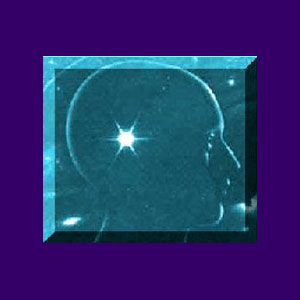
The psychology of fibromyalgia is a crucial aspect of this devastating health crisis, but rarely receives the same attention as the physical manifestations. Instead, doctors focus on categorizing the expressions of FMS according to a ridiculous symptom checklist, instead of trying to ascertain its underlying causation in the mind and body.
Fibromyalgia is an epidemic pain syndrome which affects mostly women who appear to be otherwise healthy and vibrant. Fibromyalgia is characterized by widespread and severe pain in the muscles and joints, as well as a host of related physical and psychoemotional symptoms. There is no known cause and no known cure for FMS.
This treatise provides an important look at the psychological effects of fibromyalgia and may even help patients to understand the role of the mind in creating the origins of the syndrome.
Psychology of Fibromyalgia Treatment
Treatment for fibromyalgia is still in the dark ages. Rheumatologists have pioneered therapy options to battle this terrible syndrome, yet have achieved very little success in curing or even managing the symptoms. Most therapy options are symptomatic treatments and a great number have serious side effects which actually rival the terrors of the condition itself. Pharmaceutical treatment using pain management drugs is most common, with dietary and lifestyle changes coming in a distant second.
Treatment often worsens the condition and allows it to expand into new and cruel symptomatic expressions. This is typical of any potentially psychosomatic pain syndrome, since attention is exactly what the symptoms demand and there is no greater validation than dedicated medical treatment. Even the purely physical effects of the drugs can make symptoms much worse. Remember, FMS drugs are some of the most powerful in the entire pharmaceutical industry and are extremely toxic to the mind and body.
Importance of the Mindset of Fibromyalgia
Most fibromyalgia patients begin a long and dark descent into pain and suffering the moment they are officially diagnosed with the syndrome. Many doctors are known for spreading the nocebo effect on thick during the diagnostic process, setting the stage for this chronic pain condition to escalate. Most women never truly recover from fibromyalgia and some are completely disabled by their suffering. Unfortunately, although some care providers realize the strong link between the mind and body when it comes to fibromyalgia, others simply deny the connection, banishing the hope of a cure for every one of their doomed patients.
Fibromyalgia has been classified as a severe form of tension myoneural syndrome by the most enlightened caregivers and has been known to respond exceptionally well to treatment using knowledge therapy. Using traditional or alternative medical care practices to fight this disorder has proven to be a mostly fruitless and unrewarding experience for most patients.
Psychology of Fibromyalgia Guidance
Many patients are insulted by the implication that fibromyalgia might be purely psychosomatic. This is no surprise, given the stigma attached to mindbody disorders in general. Many patients even feel attacked when someone is trying to help them by pointing out the logic of the possible mindbody nature of the disease. They simply do not comprehend the meaning of the word psychosomatic and feel as if their pain is being doubted, belittled or downplayed. It is a real shame, since this acceptance is vital to ending the condition.
The bottom line truly comes down to this. Give me 1000 fibromyalgia patients and I will show you 990 who can not find lasting relief. Of the remaining 10, most will report some relief using a wide diversity of personalized treatments, some of which might be completely illogical. Now, apply knowledge therapy to the group and watch the number of patients who enjoy a complete and utter cure rise dramatically.
Back Pain > Relief From Fibromyalgia > Psychology of Fibromyalgia




